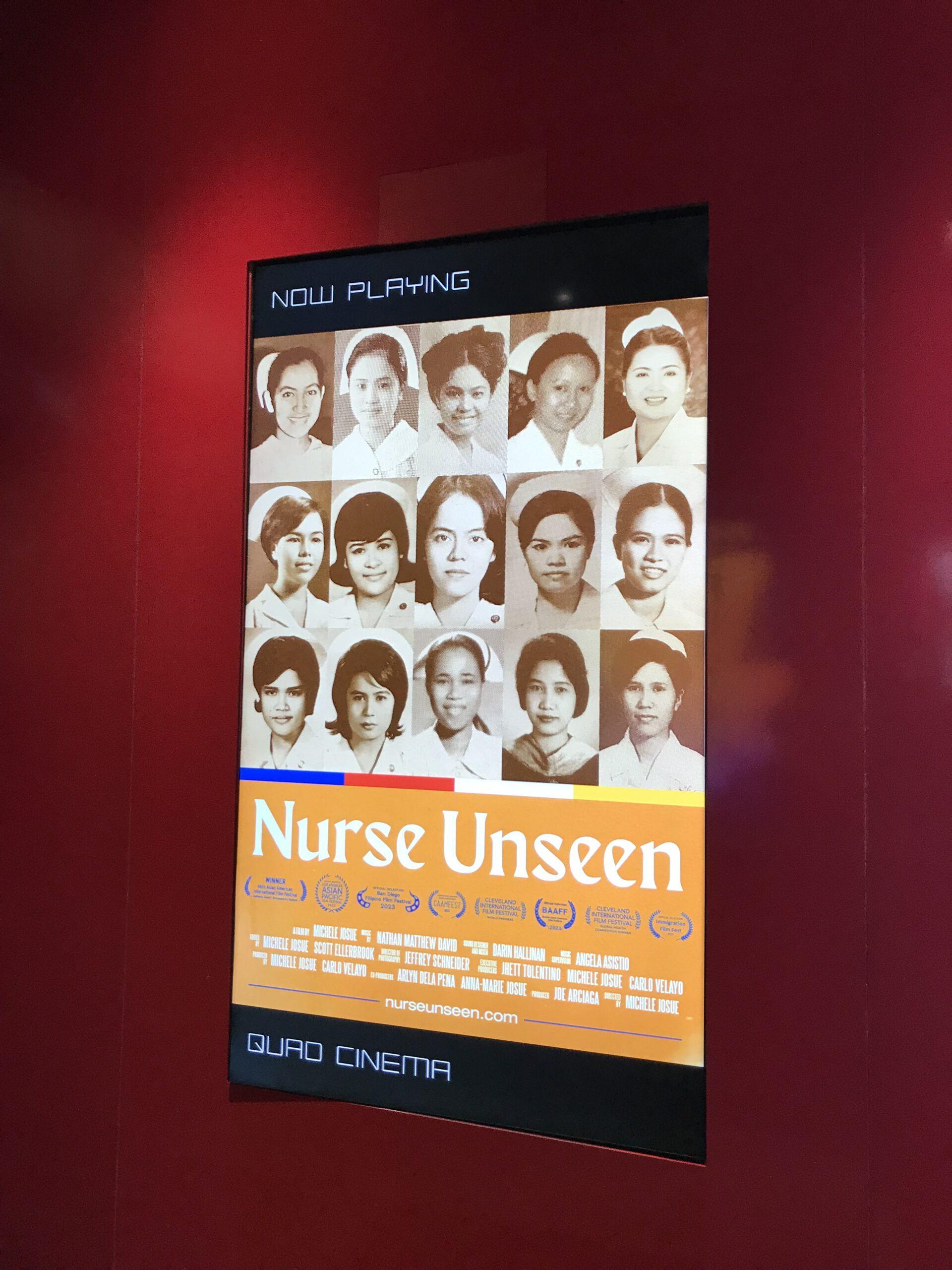Documentary shines a light on the Filipino nurses who risked it all during COVID-19
During the COVID-19 pandemic, Filipino nurses, who make up only 4% of the nursing workforce in the United States, found themselves disproportionately on the frontlines. Amid a nationwide healthcare crisis, these nurses faced not only the physical toll of fighting an unseen virus but also a rise in anti-Asian hate. The documentary Nurse Unseen sheds light on their untold stories of sacrifice, resilience, and the historical connections that have made Filipino nurses a critical part of the American healthcare system.
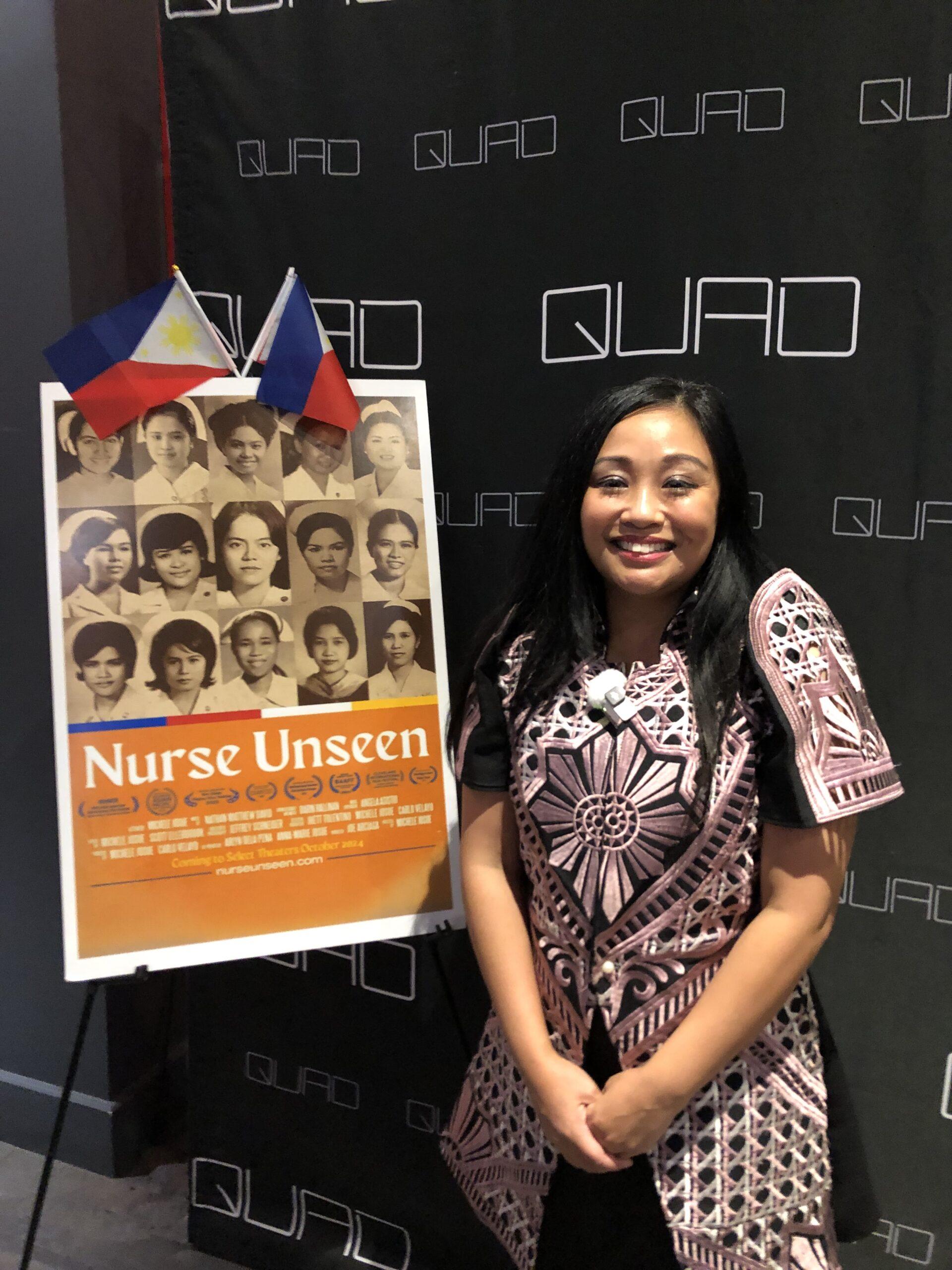
Michele Josue
Directed by Emmy-winning filmmaker Michele Josue, Nurse Unseen takes an intimate look at the lives of Filipino nurses through personal accounts, historical context, and stories of loss and survival during the pandemic. The film looked into the colonial ties between the Philippines and the United States, tracing how these nurses came to be integral to the American healthcare system and why they were especially vulnerable during the health crisis.
Josue’s journey in making the documentary was deeply personal. Inspired by her aunt, Dodo Cueva, a longtime oncology nurse at Children’s National Hospital in Washington, D.C., Josue wanted to honor the legacy of Filipino nurses like her aunt who had dedicated their lives to caregiving. “She was essentially my second mom, and she really instilled in me a love of community and service,” Josue shared. This drive to honor her aunt’s legacy transformed into Nurse Unseen, a film that would capture not just her story but those of countless Filipino nurses across America.
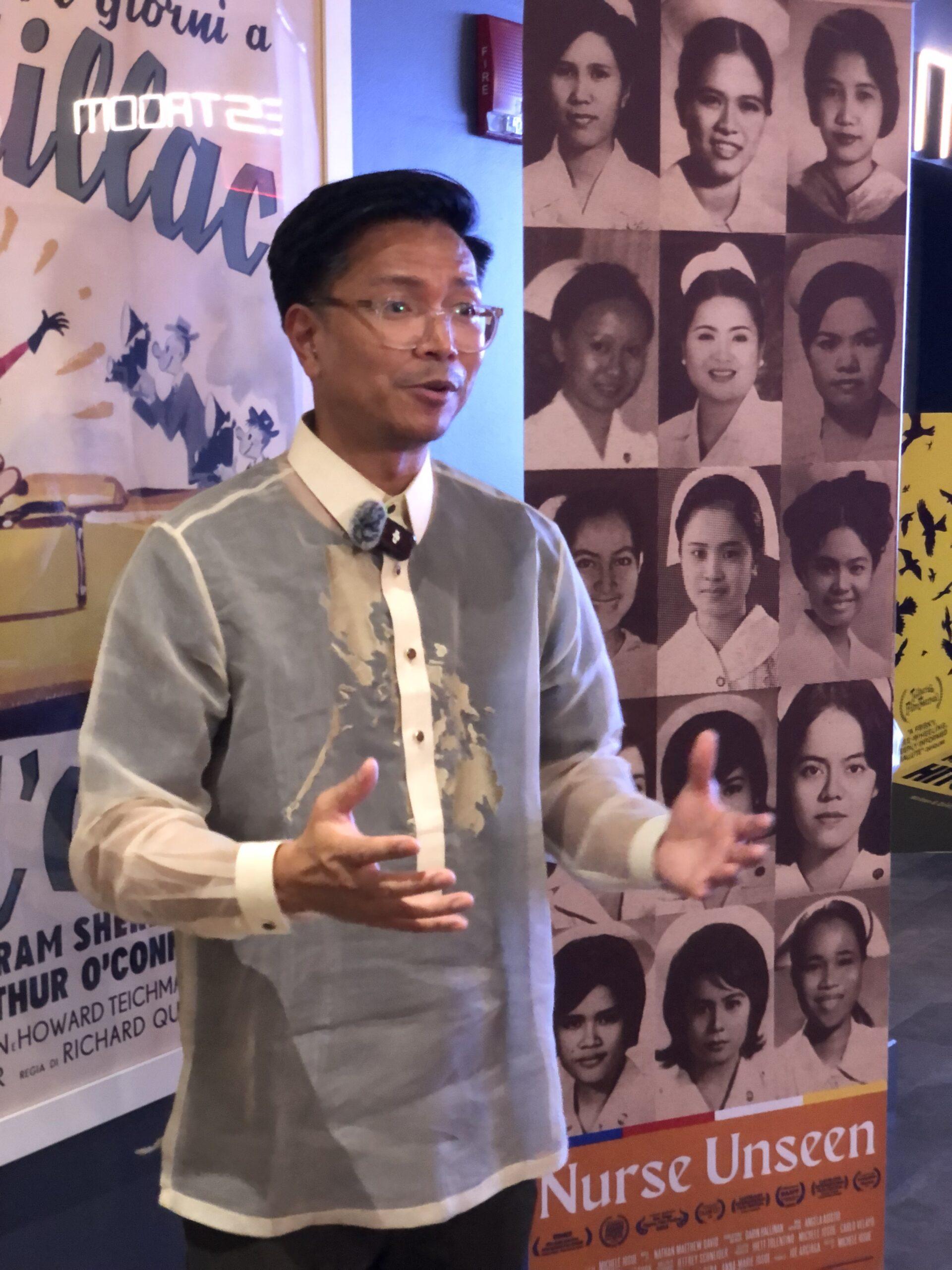
Carlo Velayo
Carlo Velayo, one of the producers, describes the documentary as “a love letter to our Filipino nurses, to our Filipino community.” For him, Nurse Unseen is not only a tribute but also a community-led project made possible by grassroots support. Velayo recalls launching two Kickstarter campaigns to bring the documentary to life. “If anyone has launched a crowdfunding campaign, it’s a full-time job,” he noted. Despite the challenges, the community recognized the importance of the story, providing the support needed to complete the film.
The pandemic showed the dedication of Filipino nurses but also exposed their vulnerabilities. From a lack of protective gear to the rise in anti-Asian hate, Filipino nurses faced an uphill battle. Many nurses contracted COVID-19, and some lost their lives. One of the first healthcare workers in Los Angeles County to die from the virus was Rosary Castro-Olega, a Filipino nurse. Her daughter, Tiffany Olega, shared poignant memories of her mother in the film, highlighting her mother’s compassion and commitment to her work. “They are not just numbers; they are mothers, they are loved ones,” says Kym Villamer De Leon, one of the nurses featured in the documentary. “More than survivors, they are stories that continue to inspire us.”
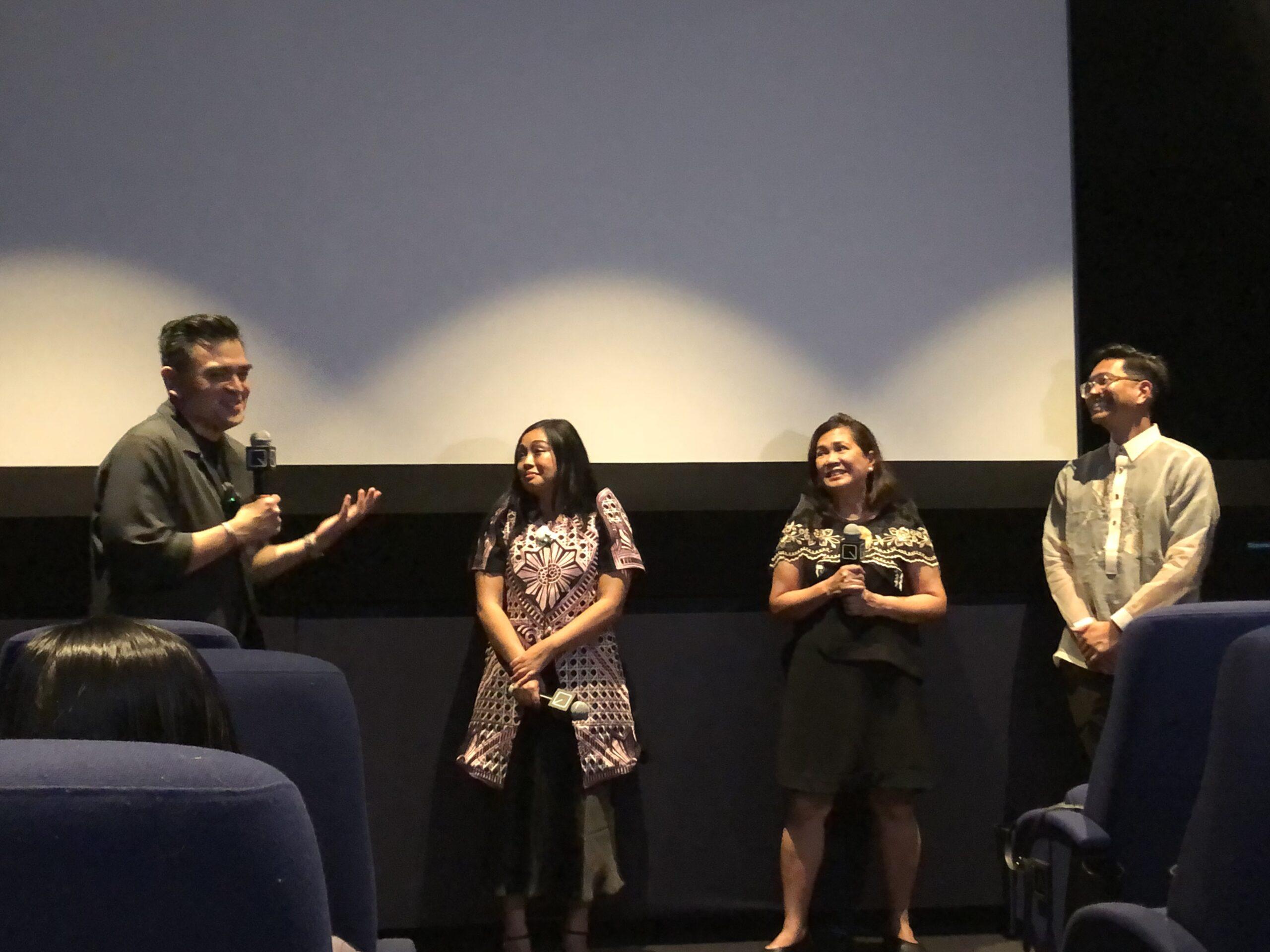
Antonio Vargas moderating a Q-and-A after the screening at Quad Cinema in New York. In attendance were Josue, Velayo, and Mary Joy Garcia Dia, past president of the Philippine Nurses Association of America
The film premiered at the Cleveland International Film Festival and garnered a strong response, receiving the Global Health Competition Award. Screenings in New York City at the start of Filipino American History Month last October sold out, prompting additional showings that made the film Oscar-eligible. Because of this eligibility for the Academy Awards, it is now available for Academy members in the Academy Screening Room for voting purposes. Nurse Unseen resonated with audiences beyond the Filipino community, with viewers recognizing the universal themes of sacrifice, resilience, and the immigrant experience. “It’s a reflection of the power of our community and what we can do when we rally together,” Josue said of the film’s success so far.
Josue masterfully wove stories that range from the historical to the deeply personal. Nurse Unseen was able to explore the long history of Filipino nurses in America, tracing back to the U.S. colonial period in the Philippines when American healthcare systems and nursing education were established on the islands. This led to a migration wave of Filipino nurses to the U.S., where they became indispensable in hospitals and healthcare facilities nationwide.
The documentary captures this historical trajectory while also spotlighting the personal stories of nurses during COVID-19. Villamer shares that singing for patients became a healing experience for her, one that allowed her to connect with patients on a human level. “At the end of the day, we’re all humans, regardless of our differences,” she reflects. The film humanized these frontline workers, showing their strength, fears, and dedication despite the challenges.
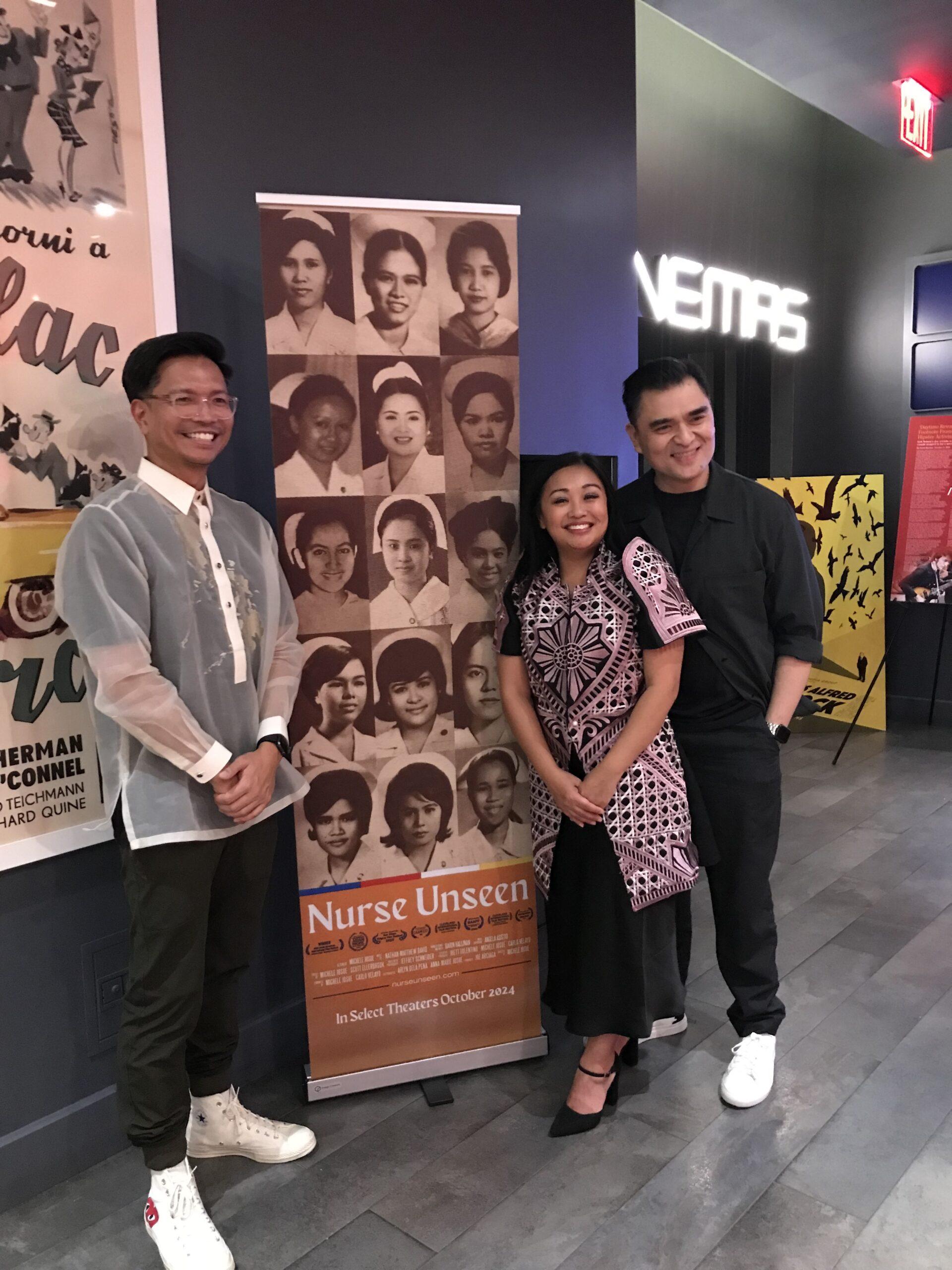
Jose Antonio Vargas with Josue and Velayo
Nurse Unseen is a call for visibility and recognition for a community that has long been overlooked. Jose Antonio Vargas, a prominent Filipino-American journalist who sponsored a screening at the Quad Theater in New York, praised the film’s community-driven approach. “It took COVID for people outside the Filipino community to realize how incredibly critical Filipino nurses are,” he said.
Looking to the future, Josue and Velayo believe there are more stories to tell as the Filipino nursing experience in America continues to evolve. “There’s just so much material and so many compelling voices and stories when it comes to the Filipino nursing experience,” Josue said. For now, they are happy to screen at the upcoming International Documentary Film Festival Amsterdam (IDFA), the world’s largest documentary film festival. They are also headed to Vancouver the film’s Canadian premiere and other states in the U.S. such as Virginia and Hawaii.
Nurse Unseen has sparked conversations not only about the contributions of Filipino nurses but also about the broader immigrant experience in America. As Velayo, an immigrant himself, puts it, “Their specific stories tell the universal story of the immigrant coming to America.” Through this powerful documentary, the previously unseen contributions of Filipino nurses are finally brought to light, giving them the recognition they have long deserved.


